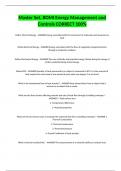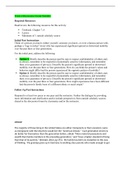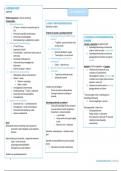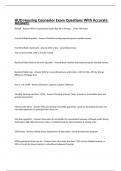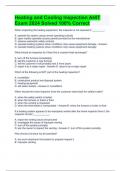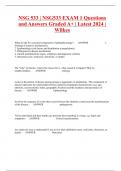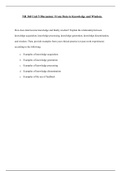Exam (elaborations)
Master Set, BOMI Energy Management and Controls CORRECT 100%
- Course
- Institution
Define Thermal Energy - ANSWER Energy associated with the movement of molecules and measured as heat Define Electrical Energy - ANSWER Energy associated with the flow of negatively charged electrons through a conductive medium. Define Mechanical Energy - ANSWER The sum of kinetic and potentia...
[Show more]
